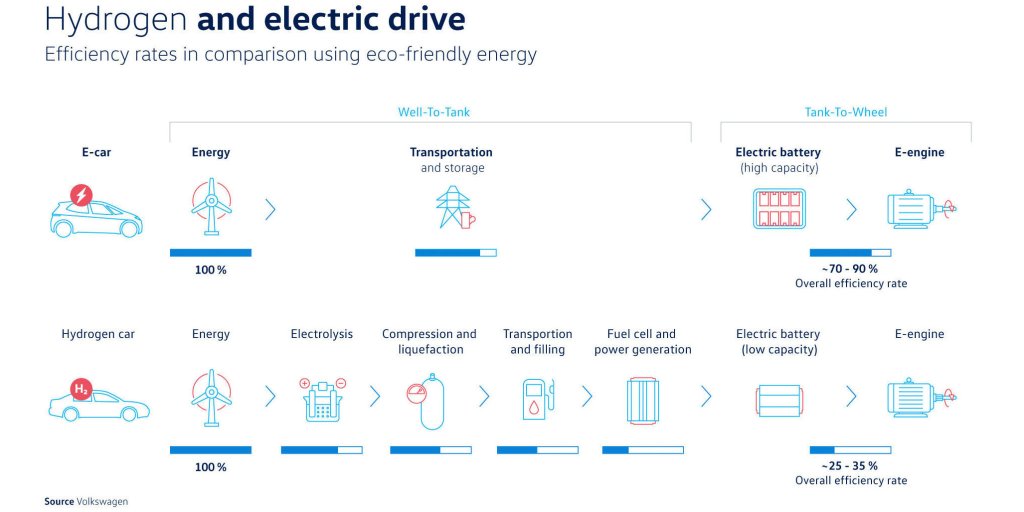IMO▸ , Hydrogen power for trucks OR trains is a rather silly idea and arguably more of a political fashion than a sensible engineering solution.
...
"Call for research into hydrogen" Sounds good, and postpones doing anything much.
Well, Volvo and Daimler appear to think otherwise. It's true their announcement of a JV with target timescale is only of a preliminary non-binding agreement until later this year. But they are going to put their own money into it, not just ask for someone else to fund research. But even then there's a nuance or two.
Toyota are still making
HFC▸ cars, and BMW have just announced one. But Daimler have just called a halt to their car production, and other makers agree it's just too expensive and inefficient (VW rather scathingly). For further details, this is the
press release from Volvo, this one is
Daimler's, and here is an article about Daimler's decision
from Elektrek:
Daimler ends hydrogen car development because it’s too costlyBradley Berman - Apr. 22nd 2020 11:20 am ET
Daimler’s Mercedes-Benz is killing its program to develop passenger cars powered by hydrogen fuel cells. The company has been working on fuel-cell vehicles for more than 30 years — chasing the dream of a zero-emissions car that has a long driving range, three-minute fill-ups, and emits only water vapor. In the end, the company conceded that building hydrogen cars was too costly, about double the expense of an equivalent battery-electric vehicle.
Mercedes-Benz will wind down production of
GLC▸ F-Cell, its only current fuel-cell model. The GLC-F-Cell was developed in a 2013 collaboration with Ford and Nissan.
The idea of the collaboration was to kickstart the production of fuel-cell cars and hydrogen infrastructure. Mercedes-Benz was the only carmaker of the three partners to produce a vehicle in the program.
Mercedes-Benz only made a few hundred examples of the GLC F-Cell because manufacturing costs for the model were so high. The car was used for business promotions but was never offered for sale to the public.
Daimler research boss Markus Schäfer in January said:
Fuel cells work great. It’s just a cost issue, and it’s all about scaling. We need volume.
Automotive News reports today:
[Hydrogen fuel-cell cars] are at least twice as expensive to build as an equivalent battery-powered car in the manufacturing. As a result, sales prices are not reflective of the cost.
Other automakers are giving up on hydrogen cars. In November, Honda — a longtime proponent of hydrogen-powered cars — said it would put its fuel-cell program on hold. Volkswagen published its position on hydrogen last month, producing this graphic:

Volkswagen concluded:
Everything speaks in favor of the battery, and practically nothing speaks in favor of hydrogen.
BMW, Hyundai, and Toyota continue to tout the technology.
Despite Daimler giving up on hydrogen for passenger vehicles, it will continue to work on fuel-cell systems for heavy-duty vehicles. On Tuesday, the German automaker agreed to cooperate with Volvo Trucks on its development. The rationale is that a fuel-cell powertrain is better suited to large trucks, where large battery packs could be too heavy.
The Daimler-Volvo partnership aims to launch a hydrogen-powered, long-haul truck “in the second half of the decade.” However, Daimler Trucks
CEO▸ Martin Daum said that the €200 million ($217 million) to be invested by the two companies “definitely won’t be enough” to move the technology into production.
Daum on Tuesday said:
The GLC car project is nearly done. As we speak, the last GLC fuel cells will be produced and handed over to customers. At the moment, we don’t plan another car.





